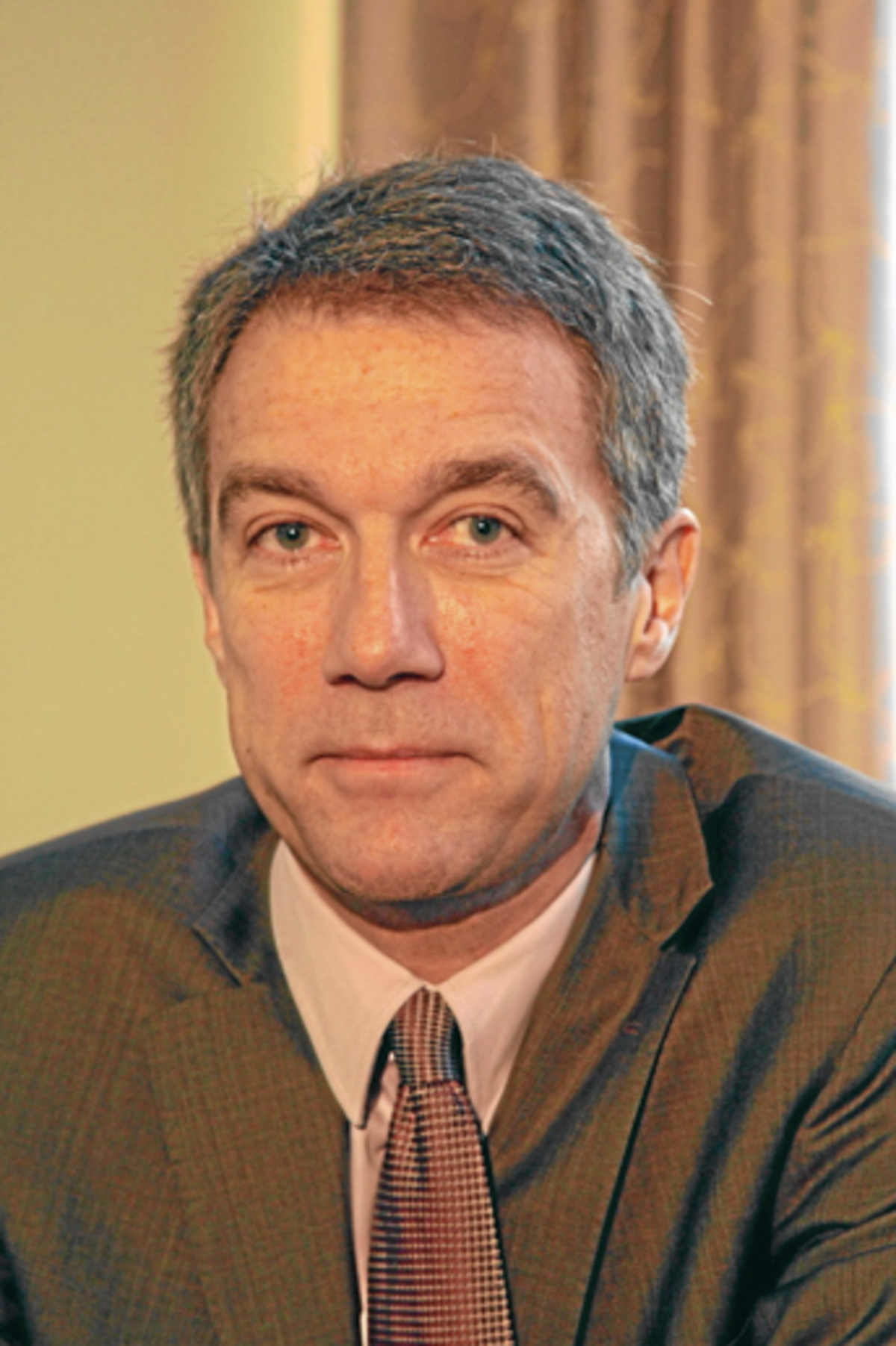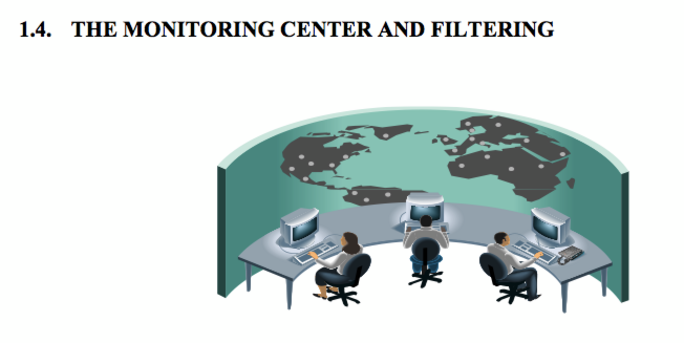Amesys, a subsidiary of French IT company Bull, which provided former Libyan dictator Muammar Gaddafi with technology to spy on emails and chat forums, has threatened former employees with legal action in a bid to stop them revealing to the media further details of the deal. In the negotiations to secure the contract, sealed with the Gaddafi regime in 2007, the company, operating under its former name i2e, delivered Tripoli with a sample of its internet spying capabilities in the form of eavesdropped personal messages exchanged by staff at a Paris university. The deal with Libya was one of several brokered by arms dealer and intermediary Ziad Takieddine, and enjoyed the backing of the then-French interior minister Nicolas Sarkozy. Fabrice Arfi and Karl Laske report.
-------------------------
Among a series of deals agreed with the regime of former Libyan dictator Muammar Gaddafi, beginning in 2007, French IT company Bull's subsidiary Amesys provided a sophisticated internet espionage system with which the authorities in Tripoli could spy on opponents.
The espionage system, called Network Stream Analyser (NSA), was sold to Libya for 12.5 million euros in 2007.
Mediapart has revealed details of the negotiations between Amesys - then called i2e - and the Gaddafi regime in its series of reports about the activities of Paris-based arms dealer Ziad Takieddine, who brokered the deals.
They were all part of a wide contract, worth a total of 26.5 million euros, called the ‘Homeland Security Program'. It was signed in 2007 by Philippe Vanier, then head of i2e, and who was last year appointed as the Chairman and CEO of Bull.

It included an encryption system, called Cryptowall, designed to protect the Gaddafi regime's communications from interception by the US-led Echelon global surveillance network (see Mediapart's investigation here). "Our procedures are totally unique and offer an inviolable solution to the Anglo-American espionage system [...] Libya's vital interests will not be spared by the Echelon system," warned a document prepared by the company for the Gaddafi regime.
The Homeland Security Program also included the building of a stealth 4x4 vehicle for Gaddafi's safe transport, sold for 4 million euros, equipped with electronic jammers and a Faraday cage, a system which Bull now markets under the name of ‘Shadow'.
Takieddine, now placed under investigation in an ongoing independent judicial probe into illegal political funding in France via weapons sales abroad, played a key role in the negotiations organizing all of the trips to Libya by Amesys (then i2e) directors, including Vannier. The company paid Takieddine at least 4.5 million euros for his services.
The negotiations were managed at a political level by the French interior ministry headed by Nicolas Sarkozy, shortly before his election as president. Takieddine worked in close collaboration with Claude Guéant, the current French interior minister, initially when Guéant was Sarkozy's ministerial principle private secretary, and later when Guéant became the newly-elected president's chief-of-staff.
Mediapart has obtained a document belonging to Takieddine in which Amesys, when it was called i2e, vaunted the capabilities of its system intercepting emails and internet chat forums.
The document, prepared at the end of 2006, included examples of tests of its interception technology carried out secretly within a laboratory of the Pierre and Marie Curie University in Paris. The laboratory, Lip6-CNRS, was specialized in communication network research, and had sold patents to some of its discoveries to a company called Qosmos, which was until 2008 a sub-contractor for Amesys. The samples were provided in the form of a list of interception of email and search engine activity (see document below).

Enlargement : Illustration 2

The sample list of covert email interception at a Paris university (click screen to enlarge).
"It's staggering," commented a former researcher at the laboratory, now a university teacher, whose name is withheld by Mediapart. "They intercepted everything that entered and left Lip6. They intercepted my emails, and that is prohibited [by law]."
But beyond the issue of Qosmos secretly testing its interception equipment within the laboratory, no explanation has been given as to how the results - including personal exchanges between lab staff, MSN communications and Google page searches - ended up in a document sent to the Libyan authorities by Amesys.
Bull slogan 'Architect of an Open World'
In August, The Wall Street Journal published an article about cooperation between Western firms and the Gaddafi regime exposed since the regime's fall in Tripoli. Its journalists had visited the now-abandoned Amesys internet espionage centre in the Libyan capital. "The recently abandoned room is lined with posters and English-language training manuals stamped with the name Amesys [...] which installed the monitoring center," the article reported. "A warning by the door bears the Amesys logo. The sign reads: ‘Help keep our classified business secret. Don't discuss classified information out of the HQ.'"

Enlargement : Illustration 3

Bull, whose corporate slogan is 'Architect of an Open World', has been highly embarrassed by the media revelations about the activities of its subsidiary unit in Libya. Just days after the WSJ article was published, Amesys issued a statement downplaying the spying capacity of its internet espionage system, now sold under the name ‘Eagle', claiming that it was "analytical material involving a [small] fraction of existing internet connections". (Shortly afterwards, it abruptly closed down its website, which is officially still under "renovation").
However, as revealed in the documents written in English and reproduced below, the company proposed Gaddafi with a system that was a great deal more powerful than the analysis of just "a small fraction" of connections.
The controversy over the deal has prompted Amesys to write to former employees with a stern warning that they face legal action if they provide the media with details of the cooperation with Gaddafi.
Mediapart has obtained details of the text of the letters, sent by recorded delivery and signed by Amesys ‘Human Resources' director Nicolas Poiré. It began: "It has been brought to our knowledge that technical, functional and commercial information that you have been familiar with within the framework of your duties, has been given to third parties, notably certain media [organizations]. This information is causing considerable prejudice to our company's business and image for which we intend to obtain compensation."
It then went on to warn: "While awaiting the end of current investigations, which should allow for the identification of the current or former collaborators responsible, we can only invite you to strictly respect the obligations upon you."
-------------------------
For more on this story and Mediapart's exclusive investigations into the political scandal surrounding the activities of arms dealer Ziad Takieddine, click on the links below:
French judge finds key evidence in illegal funding probe
British divorcee becomes key witness in French political funding scandal
Net closes in on French presidency after funding 'scam' arrests
Arms dealer probe brings illegal funding scandal closer to Sarkozy
The secret financier who brings danger to the Sarkozy clan
Sarkozy, the arms dealer, and a secret 350 million-euro commission
The well-connected arms dealer and his tax returns
How Sarkozy aides saved arms dealer from paradise island 'death blow'
Exclusive: how Sarkozy's team sought grace for Gaddafi's murderous henchman
The arms dealer and his Paris party for the glitterati
Exlusive: how President Sarkozy's team dealt with Gaddafi
When Total paid the bill for the Elysée's secret emissary
How French intelligence shields the sarkozy clan's unofficial emissary
Divorce court freezes arms broker's assets
The French-built stealth offroader that may be hiding Gaddafi
-------------------------
English version: Graham Tearse

